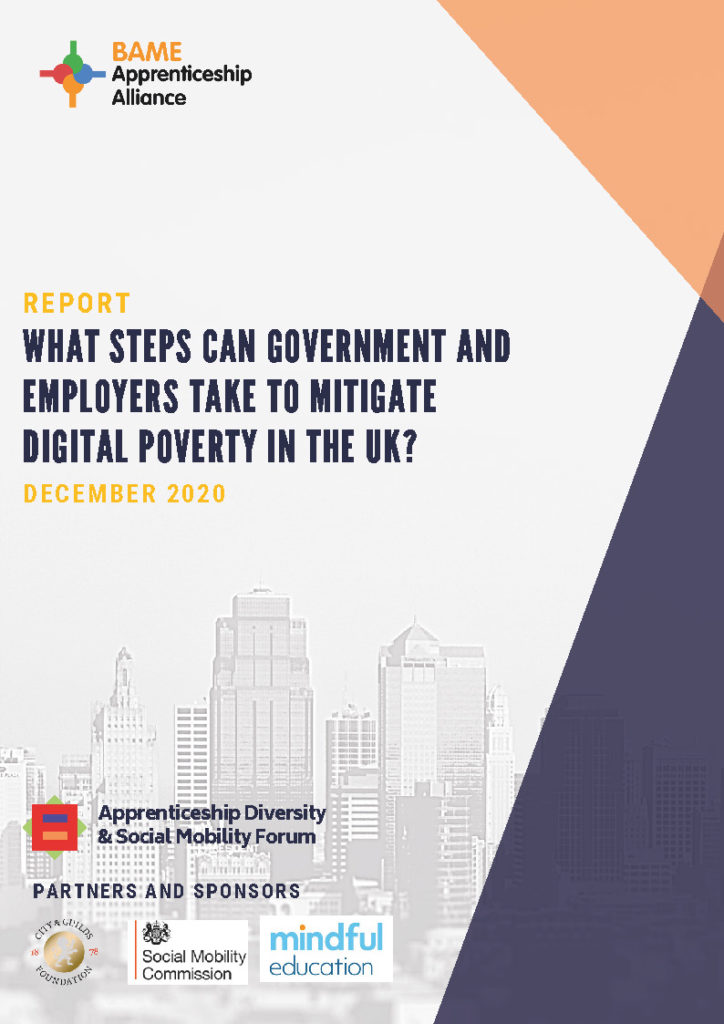Last month I was invited to speak at the Apprenticeship Diversity & Social Mobility Forum, which aims to bring together leading figures in diversity and inclusion, and experts on social mobility. The series of three annual events was organised by one of our newest partners, the BAME Apprenticeships Alliance, a community of organisations who support diversity in the workplace through policy and advocacy.
The theme of the 2-day forum was ‘Building a grass roots approach from the top’. We highlighted the role for employers in recognising the impact digital poverty on young people when it comes to finding learning and work opportunities, as well as performing their job in the current Covid-19 crisis.
Awareness and solutions
Digital poverty has always existed but has been brought to light by the pandemic. During the first lockdown 1.9 million households reported they had no access to the Internet.
Technology & Internet is no longer a luxury but essential to both education and employment. As working from home and virtual schooling took off, those that often need the support most were left behind. It’s great that opportunities to learn remotely are being created but those who need it most often can’t access them and we still have a long way to go.
The City & Guilds Foundation is looking at ways we can become more inclusive and make our initiatives and programmes accessible to everyone, regardless of how they access them. For example, our Bursary programme, which was created to help individuals who have the drive and passion to study or change career but can’t afford it. By improving our outreach, shortlist and communication with applicants we can make funding and support accessible to those who need it most.
Useful links
1.9 million households with no access to the Internet and tens of millions more reliant on pay-as-you-go services to make phone calls or access healthcare, education and benefits online. Read more about the growing digital divide in The Guardian.
A 2019 report by the Office for National Statistics (ONS) revealed that, although declining, the number of “Internet non-users” is still large in the UK. In 2018, there were 5.3 million Internet non-users in the UK: 10% of the adult population. Read more. Read more about Covid-19 and the UK digital divide in The Lancet
According to the poll of 1,416 students, run for the Office for Students (OfS):
- 71% reported a lack of access to a quiet study space, with 22% ‘severely’ impacted
- 56% said they lacked access to appropriate online course materials, with 9% ‘severely’ impacted
- 18% were impacted by a lack of access to a computer, laptop or tablet, with 4% ‘severely’ impacted.
The BAME Apprenticeship Alliance have just published a report on what steps government can take to mitigate digital poverty in the UK.
We look forward to supporting the upcoming Spring Forum. Keep an eye out on the Apprenticeship Diversity & Social Mobility Forum to join us!
Download the Digital Poverty report
